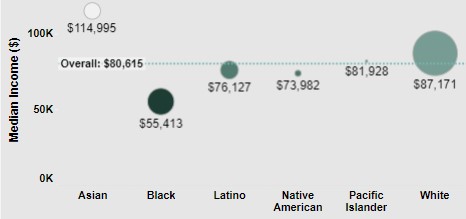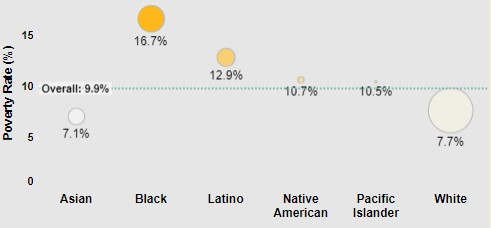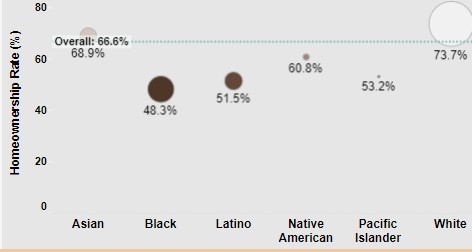The Role of Food Insecurity
| Year | % Food Insecurity |
|---|---|
| 2017 | 10.2 |
| 2018 | 9.9 |
| 2019 | 9.4 |
| 2020 | 7.7 |
| 2021 | 8.1 |
The Souper Bowl helps to fund the Village Harvest which is not budgeted but depends on contributions. Harvest fund levels are affected by trends in food insecurity.
The trends of food insecurity have improved over the last few year as a percentage of the population except for the last year (2021) in the table.
That’s the good news we can all appreciate. However, all groups in the community have not shared in this improvement.
Food insecurity is an economic condition driven by several factors, chief among these is a lack of money. Overall, the economy has been positive in these years accounting for downward trend percentage of food insecurity. There is an underlying second issue. Food insecurity is affected by underlying economic and social disadvantages reflecting racial differences.
Feeding America, a charity which works with food banks, food pantries, and local food programs to provide food to people in need, has broken the food insecurity issue into five causes (2021 reflecting 2019 data) :
1. Income – Virginia’s median income ($80,615) is above the US ($69,021). However, Black ($55,413), and Latino ($76,127) income are below that of Whites, $87,171.

2. Unemployment – Virginia’s unemployment rate was reported (4.6%) below that of the US (5.5%) However Black (7.2%) and Latino rates (4.7%) are above that of White (3.7%).

3. Poverty – Virginia’s poverty rate is 9.9% and is below the national rate of 12.6%. However, Black (16.7%) and Latino rates (12.9%) are worse than that of Whites (7.7%).

4. Disability – Virginia’s disability rate is 11.9% under the national rate of 12.6%. However, the Black rate (13.7%) is worse than that of Whites (12.9%). The Latino rate (7%) is better.

5. Home ownership – Virginia’s home ownership rate of 66.6% exceeds the national rate of 65%. However, Black (48.3%) and Latino rates (51.5%) are under that of Whites (73.7%).

Another factor affecting Harvest use is connected with the end of pandemic’s special benefits. The Supplemental Nutrition Assistance Program’s (SNAP) emergency allotments (EAs) — temporary benefit increases that Congress enacted to address rising food insecurity and provide economic stimulus during the COVID-19 pandemic — ended after the February 2023 issuances. Every household in those states will receive at least $95 a month less.
In addition, some of these same families had to cope with Medicaid changes.
The Families First Coronavirus Response Act (FFCRA) directed states to maintain Medicaid health coverage for individuals enrolled on or after March 18, 2020, regardless of changes in their circumstances through the end of the COVID-19 Public Health Emergency (PHE). In return, states received enhanced funding through a 6.2 percentage point increase in the Medicaid federal Medical Assistance Percentage (FMAP).Virginia received nearly $2.5 billion in enhanced federal funding during the pandemic.
The 2023 Consolidated Appropriations Act (CAA), which was passed in December 2022, included the decoupling of the continuous coverage requirements for Medicaid from the PHE. In April 2023, Virginia returned to normal operations and began to re-determine eligibility for many Medicaid members for the first time since the start of pandemic. This would affect many of the same people dealing with changes in SNAP and would be another draw on income.
Halfway through Virginia’s review (reported in Oct. 2023) of whether millions of Medicaid enrollees are still eligible for coverage after the pandemic, nearly 160,000 Virginians have lost coverage — roughly 15% of the over 1 million members whose cases have been reviewed so far.
